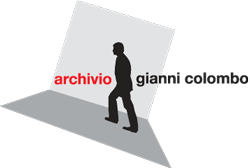Italy 70 years
curated by Marco Scotini
FM Centre for Contemporary Art
(8 april – 15 june 2016)
A major new centre dedicated to contemporary art and collecting opens in Milan’s historic industrial complex of the Frigoriferi Milanesi on April 7, 2016. Named FM Centre for Contemporary Art, it brings together in a single context all the subjects and functions related to the valorization, exhibition and conservation of private collections and artists’ estates.
FM Centre for Contemporary Art includes: an exhibition space for shows of Italian and international private collections; a temporary space for contemporary art galleries; a new open storage facility for art collectors; a number of artists’ estates, a residency program for artists and curators; a conservation centre; and an art advisory department.
The artistic direction of the centre is entrusted to Marco Scotini, who will be supported by an international board of experts that includes Charles Esche, Hou Hanru, Vasif Kortun, Grazia Quaroni, and Enea Righi.
FM Centre for Contemporary Art opens on April 7, 2016 with the exhibition L’Inarchiviabile/The Unarchivable (April 8–June 15, 2016), curated by Marco Scotini in collaboration with Lorenzo Paini. The opening coincides with the 2016 edition of the modern and contemporary art fair Miart. The exhibition presents a survey on the Italian artistic scene in the 1970s, a decade of great productivity in which culture “went beyond” the field of aesthetics, overflowing into languages that resisted cataloguing and into ephemeral practices linked to social performability and based on temporality. Different fields of art are represented in the exhibition, from musical scores to architecture, from books to cinema and photography. The “unarchivable” refers to the emergence of multiple social forces (general intellect) and multidisciplinary approach that characterized the 1970s in Italy together with the new issues of feminism and the politics of gender. At the same time, however, it refers to each of the works on display, which are in themselves attempts by the artists to develop taxonomies, and catalogue: among others the classifications of Alighiero Boetti, the Fibonacci numbers by Mario Merz, the collections of Giulio Paolini, the photo-strips of Franco Vaccari, the geographic Atlas by Luigi Ghirri, the photographic sequences by Michele Zaza or Aldo Tagliaferro, the filmic and fragrant catalogs of Gianikian and Ricci Lucchi, the leftovers materials collected by Baruchello, the gestural inventories of Ketty La Rocca, as well as the textual assemblages of Nanni Balestrini. Not only an attempt to archive the ephemeral but also an aspiration to the absolute or the idea of totality or Tutto (All), as is called a well-known work by Giovanni Anselmo.
The exhibition includes 200 artworks by 60 artists coming from the most important Italian collections.
Artists: Carla Accardi, Vincenzo Agnetti, Giovanni Anselmo, Nanni Balestrini, Gianfranco Baruchello, Irma Blank, Alighiero Boetti, Sylvano Bussotti, Marcella Campagnano, Lisetta Carmi, Giuseppe Chiari, Gianni Colombo, Dadamaino, Gino De Domincis, Mario Diacono, Mario Dondero, Luciano Fabro, Yervant Gianikian & Angela Ricci Lucchi, Luigi Ghirri, Piero Gilardi, Global Tools, Alberto Grifi, Paolo Icaro, Emilio Isgrò, Jannis Kounellis, La Traviata Norma, Ugo La Pietra, Ketty La Rocca, Laboratorio di Comunicazione Militante, Maria Lai, Uliano Lucas, Walter Marchetti, Fabio Mauri, Mario Merz, Marisa Merz, Ugo Mulas, Maurizio Nannucci, Giulio Paolini, Claudio Parmiggiani, Giuseppe Penone, Gianni Pettena, Vettor Pisani, Michelangelo Pistoletto, Emilio Prini, Salvo, Mario Schifano, Aldo Tagliaferro, Franco Vaccari, Franco Vimercati, Michele Zaza, Gilberto Zorio
Collections (among others): AGI Verona Collection, Collezione Bianca Attolico, Collezione Barillari, Collezione Guido Bertero, Collezione Sergio Bianchi, Collezione Consolandi, Collezione Carlo Danieli, Collezione Erminia Di Biase, Collezione Koelliker, Collezione La Gaia, Collezione Giorgio Maffei, Collezione Maramotti, Collezione Marinoni, Collezione Carlo Palli, Collezione Giuseppe Pero, Collezione E. Righi, Collezione Setari, Collezione Gemma Testa, Collezione Viliani.
In collaboration with: Archivio Gianfranco Baruchello, Archivio Gianni Colombo, Archivio Carla e Luciano Fabro, Fondazione Merz, Archivio Ugo Mulas, Archivio Storico Ricordi, Archivio Aldo Tagliaferro
Artists’ estates based in the centre: Archivio Dadamaino, Archivio Gianni Colombo, Archivio Ugo Mulas
Galleries: Laura Bulian Gallery; temporary space: Monitor, P420, SpazioA
FM Centre for Contemporary Art is promoted by Open Care (Bastogi Group), the only company in Italy offering integrated services for the management and conservation of art.



0 Comments